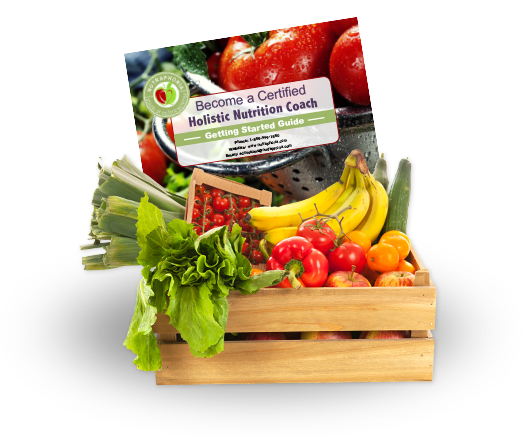February 5, 2017
Here’s a crazy stat for you: The average American consumes around 150-170 pounds of sugar PER YEAR! Yikes! The unfortunate fact is that aside from the sugar we add to our food and beverages, there is also plenty of it hidden in all sorts of foods, from bread to cereal to condiments to yogurt and beyond. Half of the time, you may not even realize that there is sugar in what you’re eating!
Many people try to combat their sugar addiction by opting for sugar-free foods, which has resulted in an average of around 25 pounds of artificial sweeteners being consumed each year as well! Double yikes!
While the thought of consuming 150-170lbs of sugar in a year might freak out even the strongest sweet tooth, the thought of consuming 25 pounds of artificial sweeteners scares me even more. One in particular that I’ll be talking about today is aspartame.
More commonly known as NutraSweet, Sugar Twin, Equal, or it’s newest name, “Amniosweet,” aspartame can be found in plenty of different food products. Why? For starters, it’s addictive. And if you are addicted to the taste of a certain food, you might just want to buy more and more of it.
One unfortunate fact about this particular artificial sweetener is that it has many potential side effects in the body. Over 92 so far, to be exact.
Yes. I said NINETY-TWO!
Here is the list of some of the potential side effects from Janet Starr Hull, creator of the Aspartame Detox Program.
Eye
Blindness in one or both eyes
Decreased vision and/or other eye problems such as: blurring, bright flashes, squiggly lines, etc.
Tunnel vision, decreased night vision
Pain in one or both eyes
Decreased tears
Trouble with contact lenses
Bulging eyes
Ear
Tinnitus – ringing or buzzing sound
Severe intolerance of noise
Marked hearing impairment
Neurologic
Epileptic seizures
Headaches, migraines and (some severe)
Dizziness, unsteadiness, both
Confusion, memory loss, both
Severe drowsiness and sleepiness
Paresthesia or numbness of the limbs
Severe slurring of speech
Severe hyperactivity and restless legs
Atypical facial pain
Severe tremors
Psychological/Psychiatric
Severe depression
Irritability
Aggression
Anxiety
Personality changes
Insomnia
Phobias
Chest
Palpitations, tachycardia
Shortness of breath
Recent high blood pressure
Gastrointestinal
Nausea
Diarrhea, sometimes with blood in stools
Abdominal pain
Pain when swallowing
Skin and Allergies
Itching without a rash
Lip and mouth reactions
Hives
Aggravated respiratory allergies such as asthma
Endocrine and Metabolic
Loss of control of diabetes
Menstrual changes
Marked thinning or loss of hair
Marked weight loss
Gradual weight gain
Aggravated low blood sugar (hypoglycemia)
Severe PMS
Other
Frequency of voiding and burning during urination
Excessive thirst, fluid retention, leg swelling, and bloating
Increased susceptibility to infection
Additional Symptoms of Aspartame Toxicity include the most critical symptoms of all
Death
Irreversible brain damage
Birth defects, including mental retardation
Peptic ulcers
Aspartame addiction and increased craving for sweets
Hyperactivity in children
Severe depression
Aggressive behavior
Suicidal tendencies
Aspartame may trigger, mimic, or cause the following illnesses:
Chronic Fatigue Syndrome
Epstein-Barr
Post-Polio Syndrome
Lyme Disease
Grave’s Disease
Meniere’s Disease
Alzheimer’s Disease
ALS
Epilepsy
Multiple Sclerosis (MS)
EMS
Hypothyroidism
Mercury sensitivity from Amalgam fillings
Fibromyalgia
Lupus
Non-Hodgkins Lymphoma
Attention Deficit Disorder (ADD)
Here are some common foods that may contain aspartame:
1. Diet soda
Regular soda contains around 9-10 tsp of sugar per can which is bad enough, but diet soda is even worse (in my opinion) as it is likely sweetened with aspartame.
2. Soft drinks
Powdered and bottled fruit & vegetable juices, flavoured coffees, hot chocolate mixes, sports drinks.
3. Gum/Breath mints
4. Candies
5. Yogurt
Look for the words “Fat free” or “sugar free” to find potential culprits. Instead, try a plain, full-fat yogurt and add your own berries, mashed banana or stevia (a natural plant based sweetener) to sweeten. Bonus points if it’s a plain greek yogurt (more protein) or a kefir (which contains healthy probiotics.)
6. Condiments
Whether it’s something sweet like jam or syrup, or something savoury like ketchup or teriyaki, have a peek at the label to see if it contains aspartame. Something to look for: The words “Low-sugar,” “Sugar-free,” or “Fat-free.”
What should be done from here?
My thoughts: Now that you’re armed with this knowledge, have a look at your food labels. Look for NutraSweet, Sugar Twin, Equal, or Amniosweet in the ingredients list when shopping at the grocery store. Keep an eye out for phrases like “Low-sugar,” “Sugar-free,” or “Fat-free,” as these may also contain aspartame. Be open to trying a more natural sweetener such as stevia, which is plant-based. (I used to be a 2 spoonfuls of sugar per coffee kinda girl, then I switched to stevia, and now I actually love it not sweetened at all! Simple small changes like these can make a huge difference in your overall health!) And lastly, opt for the foods you find around the PERIMETER of the grocery store as much as you can. Whole fruits, veggies, quality proteins, nuts and seeds.
QUESTION: Do you struggle with sugar cravings? I would love to hear your thoughts in the comments below!


